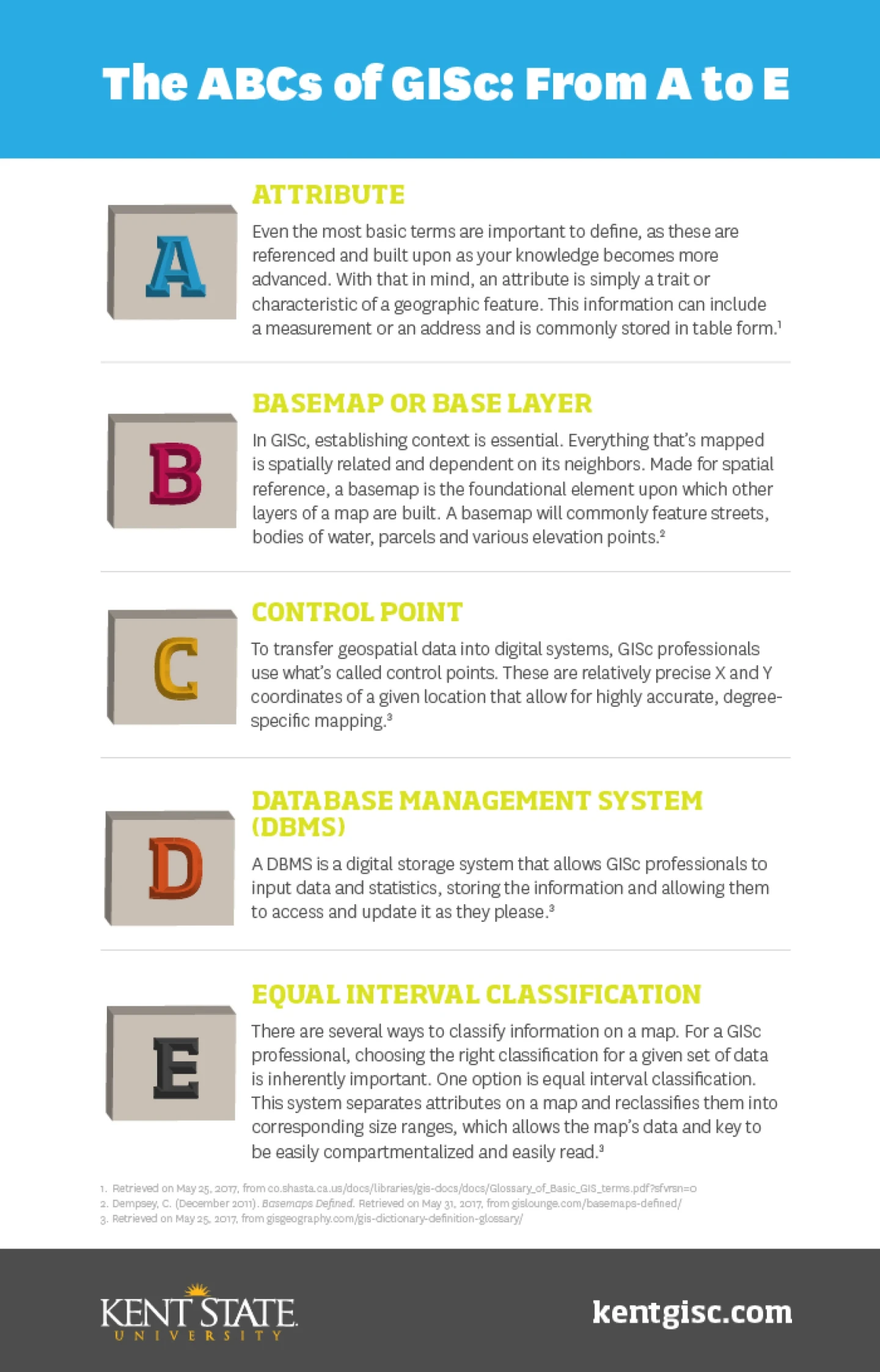A Glossary of Geographic Information Science Terms
The world of geographic information science (GISc) is filled with unique acronyms, phrases and definitions. Because of this wide range of terminology for tools, technologies and techniques used in the field, a glossary of important terms is as vital as it is extensive.
Below, we’ve listed a few relevant bits of GISc language for those interested in the field.
Within every GISc role, there’s a world of unique vocabulary and phrases. While the definitions above provide a foundation for professionals to build upon, geographic information science provides the rare opportunity to add to the dictionary based on future needs and further innovation and discovery. For GISc professionals seeking to influence the field, it can be a thrilling and rewarding pursuit, to say the least.
Interested in learning more? Read about how GISc is changing traditional career paths.






